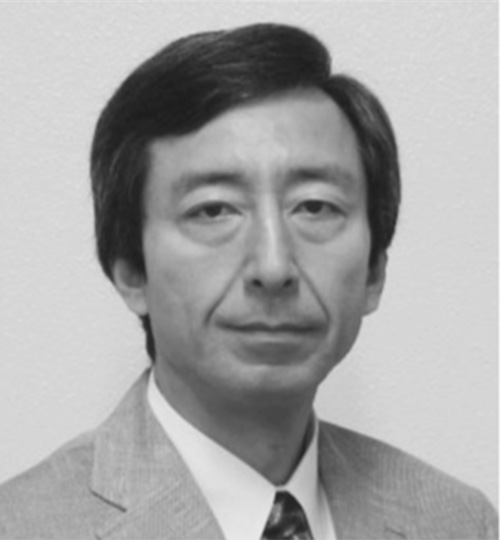 Dr. Makino completed his masterfs course at the Graduate School of Engineering, Tohoku University and joined Yokosuka Electrical Communication Laboratory of Nippon Telegraph and Telephone Public Corporation (now NTT Corporation) in 1981. He became a senior research engineer in NTT Human Interface Laboratories in 1996 and director of the Media Information Laboratory, NTT Communication Science Laboratories in 2003. Since 2009, he has been a professor in the Faculty of Engineering and Information, University of Tsukuba.
Dr. Makino completed his masterfs course at the Graduate School of Engineering, Tohoku University and joined Yokosuka Electrical Communication Laboratory of Nippon Telegraph and Telephone Public Corporation (now NTT Corporation) in 1981. He became a senior research engineer in NTT Human Interface Laboratories in 1996 and director of the Media Information Laboratory, NTT Communication Science Laboratories in 2003. Since 2009, he has been a professor in the Faculty of Engineering and Information, University of Tsukuba.Over a span of many years, Dr. Makino has been engaged in research on statistical signal processing of audio media. Applying his remarkable creativity and strong leadership, he has recorded outstanding achievements in exploring and systematizing innovative technologies in this field.
After joining NTT, he studied fast-converging echo cancellation theory based on second-order statistics. By focusing on the statistical properties of acoustic wave attenuation and speech, he developed an adaptive algorithm that achieves high-speed adaptive tracking. In addition, he developed a high-performance, acoustic echo canceler which uses adaptive operation control to improve performance during double-talk and also uses automatic loss control, thereby achieving speech-driven automatic learning. This canceller has made it possible to cancel an echo instantaneously without interfering with ongoing speech(talk?) and thereby to produce a seamless speech communication environment in which the speaking parties feel as though they are in the same room. A DSP board with the new adaptive algorithm implemented was jointly developed with AT&T in the U.S.A. and sold around the world. In Japan, more than 50,000 echo cancellers based on his technology were released into the market, recording sales valued at more than 3 billion yen. By dramatically enhancing speech quality, his technology has had a significant impact on society.
From the perspective of spatial acoustics, he analyzed the operation mechanism of blind sound source separation that is based on independent component analysis, which is an unsupervised machine learning theory grounded in higher-order statistics. He was the first to indicate that this operation principle is equivalent to parallel simultaneous learning of a microphone array, which has long been studied under the name of gadaptive beamformerh. Clarification of this operation principle has made it possible to apply various acoustic signal processing technologies, which had been developed for adaptive beamformers, to sound source separation. As a result, he has dramatically enhanced the performance of blind sound source separation technology and achieved world-leading performance. Furthermore, he has established acoustic signal processing and statistical inference theory, demonstrated his leadership in worldwide research in this field, and created a new research field.
In recognition of these achievements, Dr. Makino received the Ministerfs Award for Science and Technology from the Ministry of Education, Culture, Sports, Science and Technology and two Achievement Awards from the IEICE. He has been designated as a fellow by the IEICE and the IEEE. He has contributed time and energy to development of the IEICE by serving in several positions, including vice-president of the Engineering Sciences Society and a member of the Fellow Nomination Committee. He has also served in important offices internationally, including being a member of the IEEE Signal Processing Society Board of Governors and a member of the IEEE Jack S. Kilby Signal Processing Medal Committee.
As shown above, Dr. Makinofs contributions to the IEICE and the electronics, information and communication field have been outstanding and we are convinced that he fully deserves to be a recipient of the Distinguished Achievement and Contributions Award.